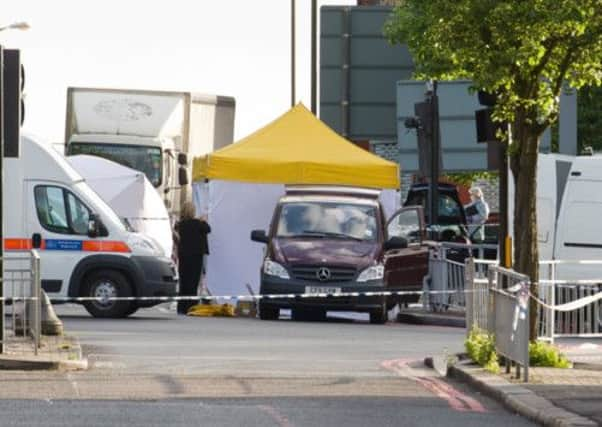Analysis: Woolwich a ‘new round of terror threats’


John O’Connor, the former commander of the Flying Squad, warned there was no way of knowing if this was “a one-off incident”. He said: “It seems to me that this is a departure from the established type of attacks or plans that you see, of terrorism causing mass murder.
“You can’t leave anything unprotected at the moment, and I think individuals will clearly be briefed as to what they need to do to be able to protect themselves, so you’re into a new round of terror threats in this country, particularly as you don’t know the full extent of it. I don’t suppose the authorities know that – they have got to look at the worst-case scenario”.
Advertisement
Hide AdAdvertisement
Hide AdMr O’Connor added that it was “very difficult to keep a tab” on what he described as al-Qaeda “franchise operations”.
Professor John Gearson, reader in terrorism studies and director of the Centre for Defence Studies at King’s College London, said there had been a “worrying” increase in groups targeting the armed services.
He said: “I would be cautious about reading too much into this at the moment, but there has been speculation, plans and discussions by some groups about targeting the armed services and that is worrying.
“They might well be al-Qaeda-inspired, or radicalised by sermons they have seen online.
“The fact that they hung around waiting to be arrested and captured is very odd – it is deadly and dangerous but not professional. But it shows they wanted to be seen and achieve some notoriety.”
Prof Gearson said the attack bore similarities to the murder of film-maker Theo van Gogh in Holland in November 2004 .
“Clearly the political implication of attacking a British soldier as a demonstrative act is why people are talking about terrorism.”
Security expert Simon Bennett said although soldiers have been targeted in the past by the IRA, this was the first attack on service personnel linked to an “Islamic fundamentalist agenda”.
Advertisement
Hide AdAdvertisement
Hide AdDr Bennett, director of the Civil Safety and Security Unit at the University of Leicester, said: “The key point I think to make is that the armed services have received this sort of attention in the past, going back to the provisional IRA.
“They are well aware of this threat, however this would seem to be the first attack on a soldier in the UK motivated by some sort of Islamic fundamentalist agenda.
“In that sense it’s a new departure, but it’s also important to keep a sense of history.”